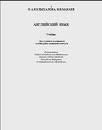Название: Английский язык Жанр: Филология Рейтинг: Просмотров: 2938 |
The role of elitesExercise 1. From the opening paragraph it becomes clear that the article will deal with specific types of «elites», in specific places, and under specific conditions. A. Define the category of «elites» as the term is used in this text? B. Where are/were these elites to be found? C. What political situation do the countries involved have in common? 2. A. Which problem of the elites is the writer primarily interested in? B. Why did each of the following professions fail to offer a solution to the problem? i. Journalism ii. The Medical Profession iii. Teaching (at the lower levels) iv. Teaching (at the secondary and higher levels) 3. Why did the legal profession offer an effective solution to the problem of the elites? 4. A. Why is it that «a person need not earn a living by legal practice in order to be a lawyer?»(11.92-93 )
B. How does this fact explain the large numberof underemployed lawyers? C. How does it explain the relationship between the lawyerintellectuals and the political elites of the new states? 5. A. Why does the writer bother to justify including the category of «students» among the intellectual elites. B. How does he justify it? (Where, when and why were even high school students regarded as «intellectuals?») 6. A. When were the first student movements organized? B. When and why did students first become politically active? intellectuals of underdeveloped countries? C. How did it happen that The London School of Economics (which is not located in an underdeveloped country) contributed more than any other educational institution «to the excitation of nationalistic sentiment» (11,142-146) D. «... were themselves formed in these milieux (1.156). In which milieux were these leaders formed? E. Why was it necessary for future Third-world leaders to come to London or Paris to «acquire some degree of national consciousness,» and «to feel how retrograde their own countries were» (11.152, 153) 7. Paragraph 16 gives us three explanations for «the political propensities of students.» What are they? 1. 2. 3. 8. A. In what way were India and Egypt worse off than Ghana, Nigeria, and Pakistan at the time this article was written? B. Why was this situation relatively bad in India and Egypt? С. Why was it somewhat better in Pakistan? D. Why wasn't it at all bad in Ghana and Nigeria? 9. A. What is the difference between under— (or mal-) employment and unemployment? B. How is this distinction related to the phenomenon of «hidden unemployment»?
|
|

|
- Акмеология
- Анатомия
- Аудит
- Банковское дело
- БЖД
- Бизнес
- Биология
- Бухгалтерский учет
- География
- Грамматика
- Делопроизводство
- Демография
- Естествознание
- Журналистика
- Иностранные языки
- Информатика
- История
- Коммуникация
- Конфликтология
- Криминалогия
- Культурология
- Лингвистика
- Литература
- Логика
- Маркетинг
- Медицина
- Менеджмент
- Метрология
- Педагогика
- Политология
- Право
- Промышленность
- Психология
- Реклама
- Религиоведение
- Социология
- Статистика
- Страхование
- Счетоводство
- Туризм
- Физика
- Филология
- Философия
- Финансы
- Химия
- Экология
- Экономика
- Эстетика
- Этика
Лучшие книги
Гражданский процесс: Вопросы и ответы
ЗАПАДНОЕВРОПЕЙСКОЕ ИСКУССТВО от ДЖОТТО до РЕМБРАНДТА
Коммуникации стратегического маркетинга
Консультации по английской грамматике: В помощь учителю иностранного языка.
Международные экономические отношения


 Читать: Part
i Section 1. introduction to word power (wp)
Читать: Part
i Section 1. introduction to word power (wp)
